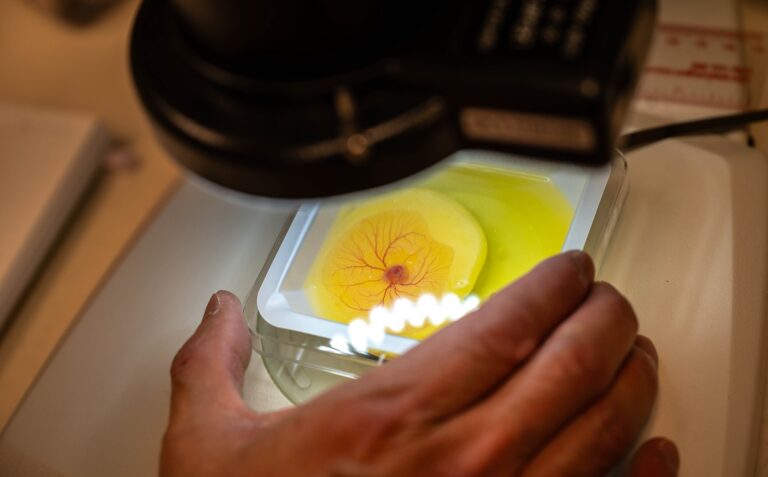UBC releases 2023 animal research statistics
This is the 14th consecutive year the university has published the data.

UBC’s summary of animals involved in research at the university in 2023 is now available.
This is the 14th consecutive year the university has published the data. UBC is one of the few Canadian universities to publish animal research statistics annually. The university publishes the data as part of its overall commitment to openness and transparency.
The data was collected for UBC’s annual report to the Canadian Council on Animal Care (CCAC), a national organization that oversees the ethical use of animals in science.
“Animal research plays a crucial role in improving medical knowledge and improving health treatments for both humans and animals. At UBC, we only use animals in research when it is absolutely essential while prioritizing animal welfare and providing the highest standard of animal care in line with all regulations and veterinary oversight,” said Jennifer Ogeer, university veterinarian with UBC Animal Care Services.
“This research also supports the improvement of conservation and preservation efforts around the world, particularly in response to climate change and environmental impacts.”
Developing research methods that reduce, refine and replace animals involved in research is always a guiding principle, as is UBC’s dedication to ensuring that all research animals receive the highest levels of care. Procedures are reviewed and approved by the university’s animal care committee, which is made up of research experts, licensed veterinarians and community representatives.
In addition to sharing statistics, UBC provides a virtual tour of its animal care facilities here. For information on UBC’s 2023 animal research statistics, as well as information about oversight and recent medical and scientific discoveries achieved through research involving animals, visit https://animalresearch.ubc.ca.
BACKGROUND | UBC 2023 ANIMAL RESEARCH STATS
Animals involved in UBC research in 2023
In 2023, a total of 184,785 animals were involved in 443 research and teaching protocols at UBC. The total number of animals represents a 17-per-cent increase from 2022, while the number of protocols dropped from 475 in 2022. More than 80 per cent of the increase in animals involved in UBC research was due to an increased number of fish involved in UBC research to enhance their health and welfare in 2023.
Almost 99 per cent of animals involved in UBC research were rodents, fish, reptiles and amphibians.
The number of large mammals involved in research decreased to 676 in 2023 from 796 in 2022.
More than 44 per cent of animals in research at UBC are rodents, numbering 82,001 in 2023, compared to 77,029 in 2022. Forty-one per cent of animals involved in UBC research in 2023 were fish, numbering 76,286, compared to 54,644 in 2022.
Almost 59 per cent of the animals (108,681) were involved in procedures that cause little or no discomfort or stress or minor stress or pain of short duration (CCAC Categories of Invasiveness B and C). These include observations of animal behaviours, blood sampling, tagging and tracking of wild animals.



